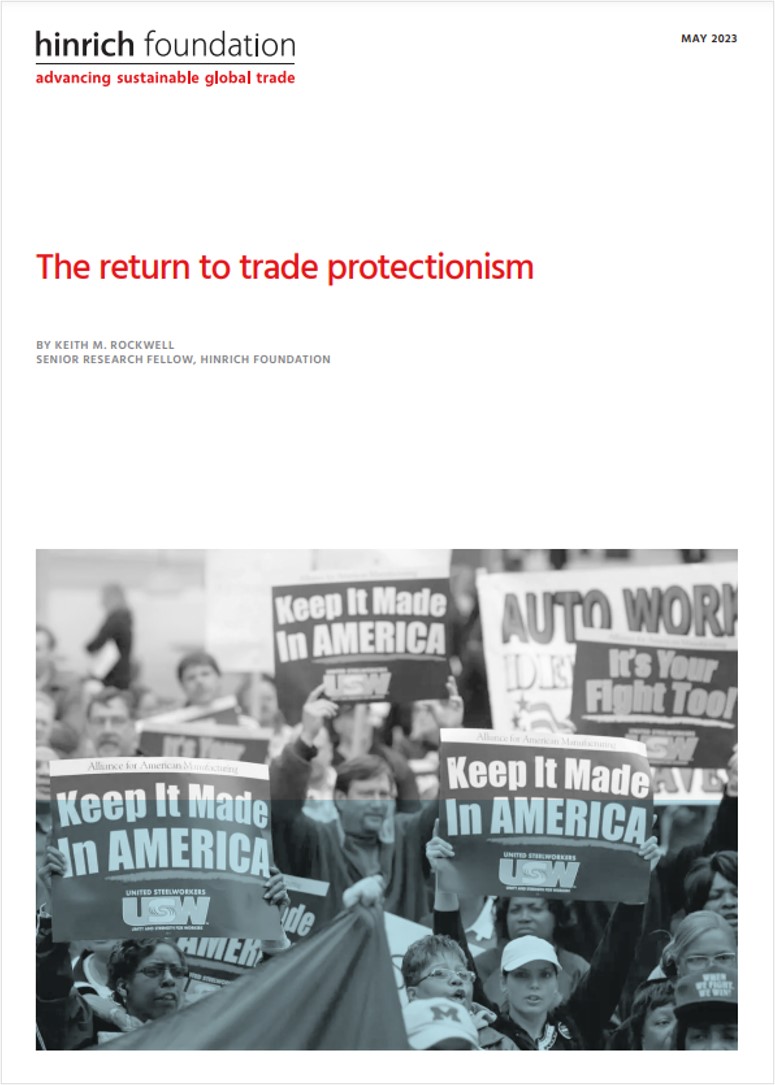Published 16 May 2023
In the first few decades since the multilateral trading system began operating in 1948, the invocation of national security as a rationale to restrict trade was extremely rare. Now, what was once the exception has become common. Despite warnings of the impact of economic fragmentation, policymakers have moved to curb exports and outward flows of investment.
A series of global shocks over the past 15 years have upended the post-World War II framework for international economic cooperation and set in train a widespread reassessment of how trade should be conducted. The global financial crisis of 2008, the heavy-handed application of tariffs by Donald Trump, the Covid pandemic, China’s remarkable economic rise, and now the war in Ukraine have skewed global trade and investment policies in ways rarely seen before. In recent years, policymakers have taken a step further by restricting exports and controlling outbound investment.
Of greater concern, however, is how politicians and the wider public is becoming increasingly inured to the dangers of closing markets. The economic ramifications are clearly negative, but the slide into a less productive system will take place gradually and many will not fully comprehend how they became poorer as a result.
The price to pay for a fragmented world will not only be economic. At a time when the logic for collective action on the climate, poverty reduction, and future pandemics has never been more evident, the folly of fragmentation is unmistakable, writes Senior Research Fellow Keith Rockwell.
© The Hinrich Foundation. See our website Terms and conditions for our copyright and reprint policy. All statements of fact and the views, conclusions and recommendations expressed in this publication are the sole responsibility of the author(s).







